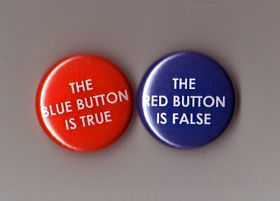277. Trivial Pursuits: Fourteenth Century Logic
The scholastics discuss the ambiguity of terms, the nature of logical inference, and logical paradoxes, and play the game of “obligations.”
Themes:
• C. Dutilh Novaes, Formalizing Medieval Logic: Supposition, Consequentia and Obligations (Berlin: 2007).
• C. Dutilh Novaes and S. Read (eds), Cambridge Companion to Medieval Logic (Cambridge: 2016).
• D.M. Gabbay and J. Woods (eds), Handbook of the History of Logic, vol.2: Mediaeval and Renaissance Logic (Amsterdam: 2008), 157-280.
• T. Parsons, Articulating Medieval Logic (Oxford: 2014).
• S. Read (ed.), Sophisms in Medieval Logic and Grammar (Dordrecht: 1993).
• P.V. Spade, Lies, Language and Logic in the Late Middle Ages (London: 1988).
• M. Yrjönsuuri (ed.), Medieval Formal Logic (Dordrecht: 2001).
• J. Zupko, “How it Played in the Rue de Fouarre: the Reception of Adam Wodeham’s Theory of the Complexe Significabile in the Arts Faculty at Paris in the Mid-Fourteenth Century,” Franciscan Studies 54 (1994), 211-25.
Thanks to Catarina Dutilh Novaes for advice on this episode!







Comments
Add new comment